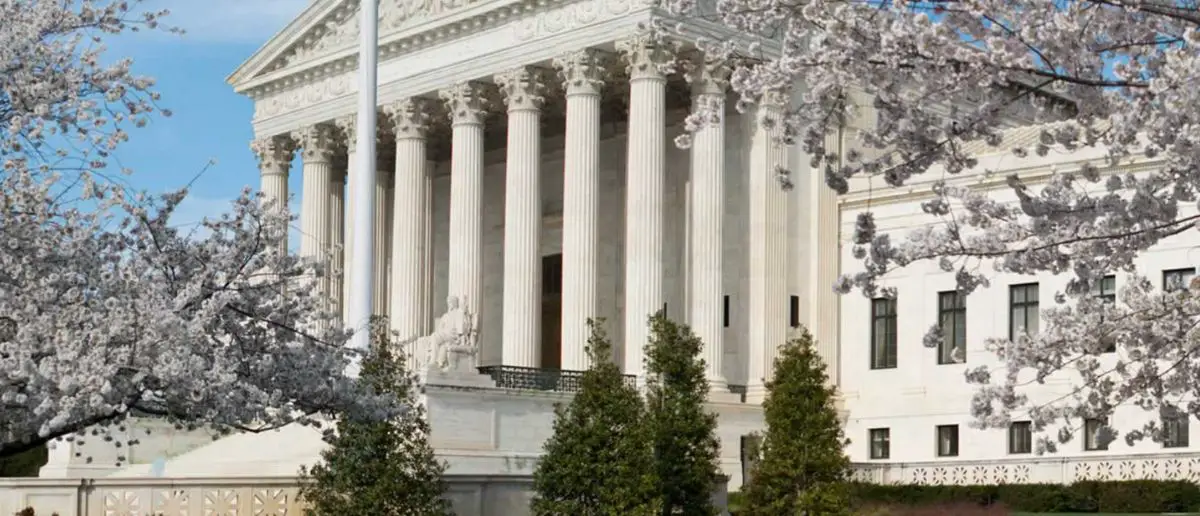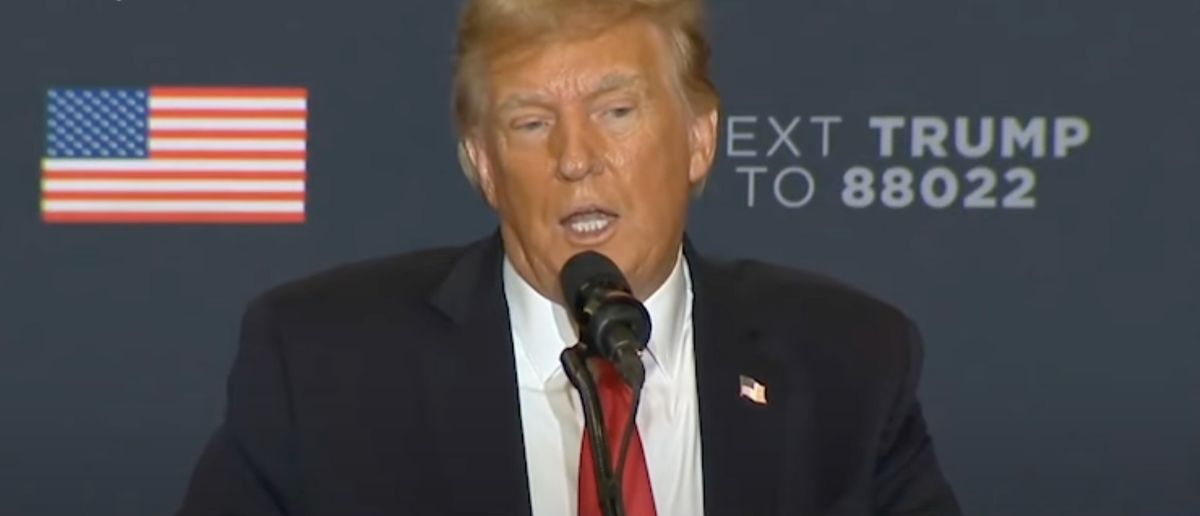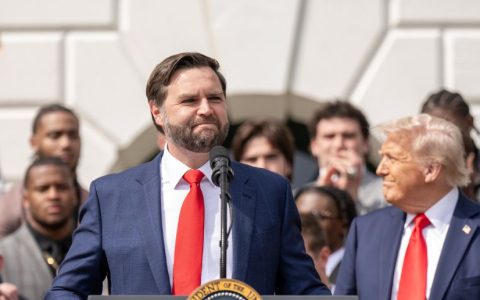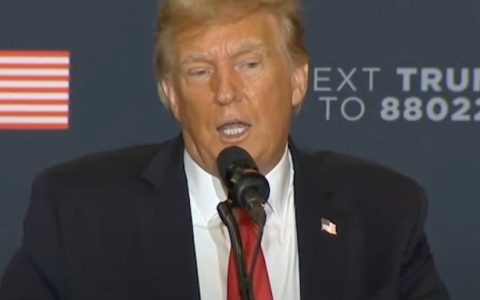
Former President Donald Trump has major plans for a second term. One huge one involves the SCOTUS.
And Donald Trump is about to make an unprecedented U.S. Supreme Court move.
As the 2024 election looms, anticipation grows among conservatives regarding former President Donald Trump’s potential Supreme Court nominations should he secure a second term. Trump’s previous judicial appointments, particularly to the Supreme Court, have been hailed as some of his most significant achievements during his presidency. With promises to release an updated list of potential nominees, speculation is rife within conservative circles about who might be included.
Trump has repeatedly emphasized the importance of Supreme Court nominations, often referring to them as one of the most critical decisions a president can make. “President Trump has said that, apart from matters of war and peace, the nomination of a Supreme Court justice is the most important decision an American President can make,” stated Brian Hughes, a senior advisor to the Trump campaign. Hughes underscored Trump’s commitment to appointing constitutionalist judges who interpret the law as written, a principle that resonates strongly with his conservative base.
The former president’s intention to release a shortlist of nominees was recently reaffirmed in an interview with CBS News political correspondent Caitlin Huey-Burns, where he indicated that the list would be made public “over the next three or four weeks.” This follows a similar promise made in March to the Washington Times, where Trump also urged his then-opponent, President Joe Biden, to do the same. “I’m going to be putting together a list of judges — great judges — a list of about 20. I think it’s important to reveal who your Supreme Court justices will be,” Trump remarked, noting that his previous list played a significant role in his 2016 electoral victory.
Trump’s practice of releasing such lists dates back to May 2016, when he named 11 potential nominees to fill the vacancy left by Justice Antonin Scalia’s passing. This unprecedented move bolstered his standing among conservative voters, and the eventual nomination of Justice Neil Gorsuch from an expanded list further solidified this support. Subsequent lists in November 2017 and September 2020 introduced Justices Brett Kavanaugh and Amy Coney Barrett, who now sit on the Supreme Court.
As the release of a new list approaches, the identities of those who might be included remain a subject of intense speculation. Republican Senators Mike Lee of Utah and Josh Hawley of Missouri, both of whom were on Trump’s 2020 list, have expressed uncertainty about who will appear on the forthcoming list. However, many believe that Trump’s appointments to the federal appeals courts could provide a glimpse into his potential choices.
Carrie Severino, President of the Judicial Crisis Network (JCN), expressed hope that Trump would continue to select judges with a demonstrated commitment to the Constitution. “There are many Trump appointees on the lower courts who have a record of demonstrating courage and commitment to the Constitution as it is written, and I would hope the next president will pick someone in that mold,” Severino said.
Mike Davis, President of the Article III Project, echoed this sentiment, emphasizing the transformative impact of Trump’s judicial appointments during his first term. “President Trump will build on his success in his second term by appointing even more bold and courageous judges,” Davis stated, pointing to the appeals courts as a key source of likely Supreme Court contenders.
Among those speculated to be on Trump’s radar are several of his appointees to the federal appeals courts, including Fifth Circuit Judges Kyle Duncan, James Ho, and Don Willett; Eighth Circuit Judge David Stras; Eleventh Circuit Judge Barbara Lagoa; and D.C. Circuit Judge Gregory Katsas. These judges, noted for their conservative jurisprudence, have been included on prior lists and could be strong candidates for the Supreme Court.
Before nominating Justice Gorsuch, Trump also considered other prominent figures such as Third Circuit Judge Thomas Hardiman, Eleventh Circuit Judge William Pryor, and then-Eastern District of Kentucky Judge Amul Thapar, who was later appointed to the Sixth Circuit. John Malcolm, Vice President of the Heritage Foundation’s Institute for Constitutional Government, identified these individuals, along with others from Trump’s previous lists, as outstanding potential nominees.
Possible Trump Additions To The High Court Bench
Malcolm specifically highlighted the qualifications of Judges Thapar, Ho, Stras, Katsas, and Lagoa, as well as former Solicitor Generals Paul Clement and Noel Francisco. Clement, in particular, stands out for having argued more Supreme Court cases since 2000 than any other attorney, including the recent Loper Bright case, which led to the overturning of Chevron deference.
Judges Ho and Branch have also made headlines for their recent decisions to refrain from hiring clerks from certain law schools, such as Columbia University and Stanford Law, in response to what they perceived as institutional bias and intolerance. These actions have further cemented their reputations as staunch defenders of conservative principles.
Reflecting on Trump’s potential impact, Ed Whelan, Antonin Scalia Chair in Constitutional Studies at the Ethics and Public Policy Center, noted that a Trump victory in the upcoming election could secure a solid conservative majority on the Supreme Court for decades. “If Trump becomes president again, he could ensure a solid conservative majority on the Court for the next 15 or 20 years,” Whelan observed, adding that Trump could build an outstanding list from the dozens of federal appellate judges he appointed.
“On top of his superb qualifications, Francisco would be one of several appealing candidates to be the first Asian-American justice,” Whelan wrote for the National Review earlier this year.
While Trump’s potential Supreme Court picks remain a focal point for conservatives, the question of who would be nominated by his political opponents also lingers. Vice President Kamala Harris, for instance, has yet to reveal her own preferences for the Court. However, her extensive record as a senator and California attorney general provides some insight into her judicial philosophy, particularly her advocacy on issues such as climate change, abortion, affirmative action, religious liberty, and LGBT rights.
President Joe Biden, meanwhile, has expressed concern about the prospect of Trump appointing additional justices. In June, Biden warned that the next president is likely to have two new Supreme Court nominees, calling it “one of the scariest” aspects of a potential second term for Trump. In response to concerns about the Court’s direction, Biden proposed several reforms in July, including a constitutional amendment addressing presidential immunity, term limits, and a code of conduct for justices.
Donald Trump, meanwhile, has been saying that the Supreme Court needs to be left alone and should operate independently and separate from any politics that the Executive and Legislative branches in D.C. are involved in.
Stay tuned to the DC Daily Journal.





